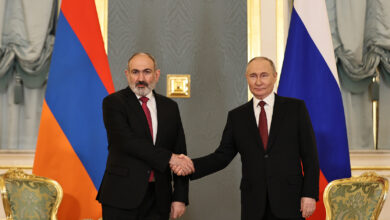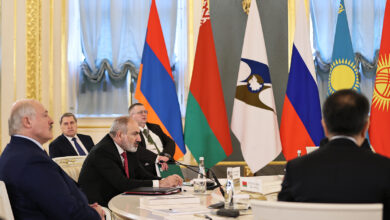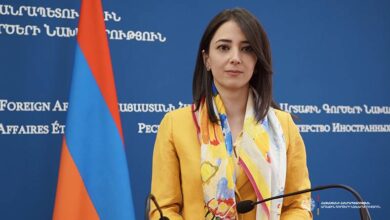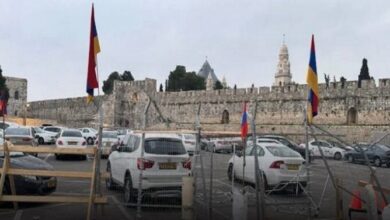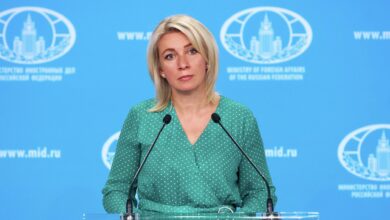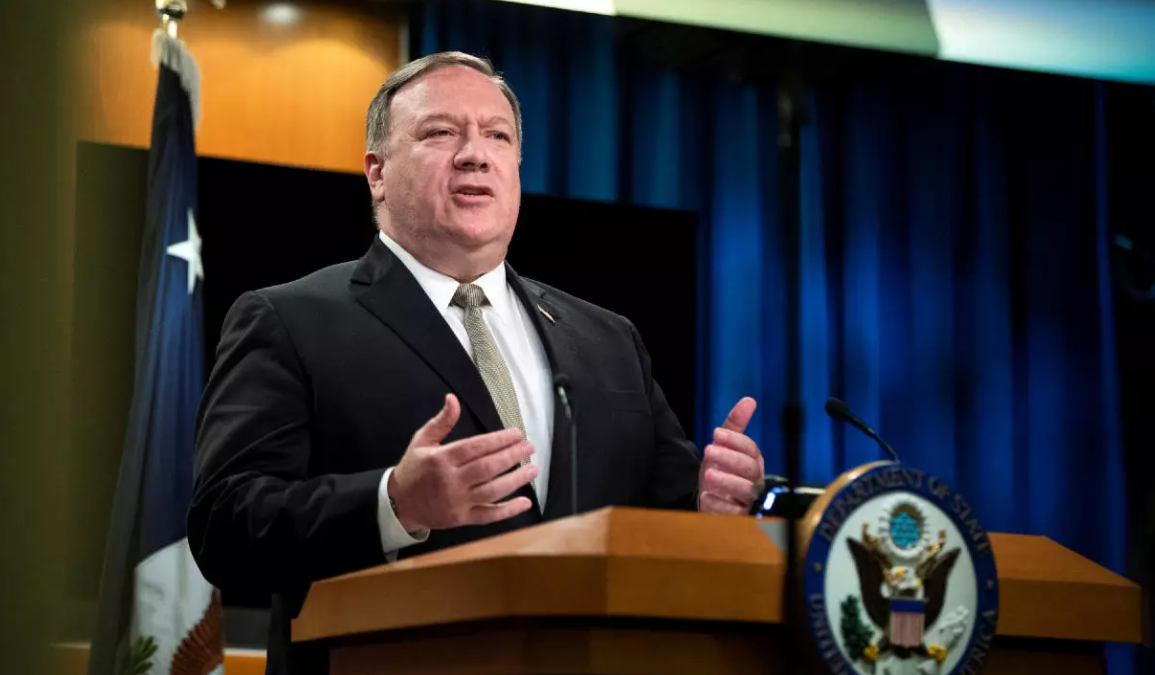
The Armenian Caucus Co-Chairs Frank Pallone, Gus Bilirakis, Jackie Speier and Adam Schiff have sent a letter to Secretary Pompeo asking him to work with the OSCE Minsk Group on a lasting settlement between Armenia and Azerbaijan that finally addresses Artsakh’s status and its right to self-determination.
“It’s also time to rethink America’s relationship with Turkey, a NATO ally, which has turned toward authoritarianism and repeatedly acted against US interests in Syria, Artsakh, Cyprus, and elsewhere,” the Caucus said.
The full text of the letter is provided below:
Dear Secretary Pompeo:
We write to express our deep concern about the humanitarian crisis that has unfolded in Nagorno Karabakh (Artsakh) since Azerbaijan and Turkey first initiated the conflict on September 27, 2020. While a trilateral ceasefire paused the fighting on November 10, we believe the United States must play an active role to help determine an equitable, long-term solution to this conflict. We strongly urge the Department of State to rapidly implement a comprehensive strategy that simultaneously addresses the humanitarian needs of Armenians displaced by the recent fighting and holds Azerbaijan and Turkey accountable for their actions that led to the needless death of thousands of Armenians.
As you are aware, Azerbaijan launched a massive offensive against Nagorno Karabakh on September 27 that led to the displacement of tens of thousands of ethnic Armenians. Azerbaijani forces were able to make rapid advances into the region with the aid of Turkish-backed foreign mercenaries – many alleged to have ties to internationally recognized terrorist groups – and the backing of drones and heavy weaponry that included the illegal use of cluster munitions.
With the growing risk of mass atrocities against thousands of Armenian civilians, Armenia agreed to a peace agreement brokered by Russia on November 10 that brought an end to the fierce combat, but at a tremendous cost to Armenians. Under the deal, Azerbaijan will hold territory in Nagorno Karabakh and has guaranteed direct passage to its enclave, Nakhichevan, through Armenia. Russian peacekeepers will be stationed in Nagorno Karabakh as part of this deal to prevent a renewal of hostilities. Reports indicate that roughly 1,100 of a total 1,960 peacekeepers prescribed by this agreement have already been deployed to the region.
While we welcome the cessation of hostilities that the trilateral agreement has provided, there remain several important issues that must be resolved and many critical questions that must be answered before a durable peace settlement can be agreed upon. First, the terms laid out in the current ceasefire are untenable for Artsakh’s long-term security and for stability in the region. The United States cannot allow the situation in Nagorno Karabakh to be solely dictated and dominated by Turkey and Russia. We must immediately reengage in the Organization for the Security and Co-operation in Europe (OSCE) Minsk Group process and pursue a long-term settlement based on the fundamental right of self-determination. This includes insisting that neutral international observers like those from the United Nations are able to monitor the ceasefire on the ground in Nagorno Karabakh.
In negotiations, our diplomats must also insist that any future negotiated settlement supported by the United States will provide the people of Artsakh the ability to reconstruct their communities and rebuild their lives without fear of further bloodshed. The international community, including the United States, has an important role to play by finally recognizing the right to self-determination for the people of Artsakh and their role as a legitimate negotiating party. Without this recognition, they will continue to face the threat of displacement by Azeri and Turkish forces without any option for formal redress.
There was significant evidence that Azeri and Turkish planned the invasion in the buildup to the September 27 assault on Nagorno Karabakh. These plans included the stockpiling of armaments like the drones that killed many innocent civilians, the July 2020 provocations by Azeri troops in Tavush, Armenia, and several instances of large-scale military exercises near the Armenian border. The United States could and should have used the threat of imposing sanctions or the threat to withhold aid – like ending the waiver of Section 907 of the Freedom Support Act and withholding any further military assistance through the Section 333 program – to deter Azerbaijan from escalating their threats of violence.
Similarly, the United State must reassess our policy towards Turkey. Turkish President Recep Erdogan’s regime reaps the rewards of the chaos he has sown in the Eastern Mediterranean, Libya, the Middle East, and the Caucasus. His deliberate destabilizing behavior demands a swift and decisive correction. We must learn from the failures of our appeasement policy toward Turkey and use every available diplomatic tool to penalize these bad actors for their aggressions and abhorrent human rights abuses. If we do not act, we risk the likelihood of an ever-expanding zone of conflict caused by the Erdogan regime.
The United States needs to recognize that the people, infrastructure, and economy of Nagorno Karabakh have been severely impacted by Azerbaijani military attacks that included the repeated shelling of civilian infrastructure. We must ensure that displaced Armenian civilians can return to their homes and are secure from future military Azeri and Turkish threats. This should include significant humanitarian aid and assistance in clearing unexploded munitions.
Finally, the United States should seek to strengthen our ties to Armenia, a young democracy that has been shaken by the events of the past month. We request that your Administration identify ways in which our economic, cultural, and other ties to Armenia can be improved to benefit Armenia and the large Armenian-American diaspora in the United States. We urge you to identify ways we can provide additional economic assistance to Armenia to support its democracy and development, as well as to respond to the large number of displaced people who have fled the conflict in Artsakh.
Thank you for your attention to this important matter. We stand ready to work with you to craft a policy that is consistent with U.S. national security, universal principles of human rights, and our democratic values.


